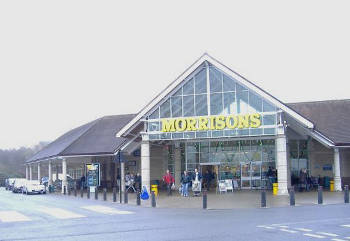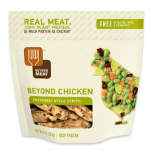
 Food waste is a constant battle for everyone in the UK, for the government as much as the supermarkets or the consumers. Every year, more than 15m tonnes of food are thrown away, even though the products were still edible. Among other initiatives, the Courtauld Commitment, which aims for a “zero waste economy”, has been signed by all four major supermarkets chains in 2013, including Morrisons. The retailer lost no time in elaborating then launching its waste reduction campaign with a trial, in more than 100 of its stores located in Yorkshire and the North East.
Food waste is a constant battle for everyone in the UK, for the government as much as the supermarkets or the consumers. Every year, more than 15m tonnes of food are thrown away, even though the products were still edible. Among other initiatives, the Courtauld Commitment, which aims for a “zero waste economy”, has been signed by all four major supermarkets chains in 2013, including Morrisons. The retailer lost no time in elaborating then launching its waste reduction campaign with a trial, in more than 100 of its stores located in Yorkshire and the North East.
In practice, Morrisons donates to local charity all products once they've reached their best-before date (it's illegal to offer products once it's past the sell-by date since it's not safe to eat anymore). This can be vegetables, fruits, packets or tins. "We don’t like the idea of good food going to waste and this programme will ensure that we find a home for the small amount of unsold or used food in our stores3 said Andrew Clappen, Group Corporate Services Director. "The challenge is finding the right community partners to work with. What we have available will vary" adds Stephen Butts, Head of Corporate Responsibility. Morrisons plans to have expanded the program to all its supermarkets during the first months of 2016.
*Photo: Rept0n1x/Wikimedia
News in the same category
Following in the footsteps of in vitro steak created in 2013, the company Beyond Meat makes meat substitutes. Whilst products in the range have a similar taste and texture to chicken or beef, they are entirely made of plants.
With its smartphone, the company, "Fairphone" is committed to fair trade in the mobile phone sector. Thus, it wants to be open about circuits, costs and production sites, and support the recycling of its products.
Lovers of shopping at Bristol Boots stores will have been alarmed by the recent warning from the chain's owners about the future of the company.
A new collaboration between Moschino and H&M has brought an eclectic mix of weird and wonderful fashions to the high street store this November. Unusual items include a swimming costume with printed CDs and condom earrings with the Moschino motif.


